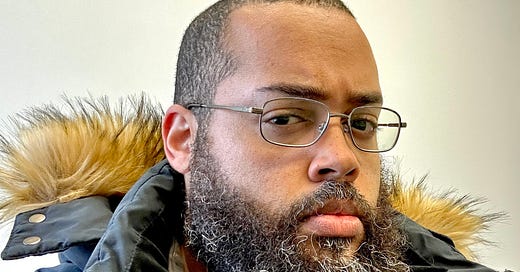Race and identity
HOW I OVERCAME RACIALIZED SELF-SABOTAGE
Why do the racists’ work for them?
Rienard Knight-Laurie
As a young adolescent, I embraced black nationalism. By the time I reached university, I had grown out of that and most of the ressentiment that accompanied it. Regardless, it left a noxious residue in my psyche. I remained stuck in an underdog posture, one that today I would associate with a traumatized and defeated people. Thus, it came as a shock to me to discover while in university that not everyone who looked like me subscribed to and was limited by an internalized racial caste system.
Growing up, I was periodically warned by my Caribbean family members to expect no kinship from Africans. The message ran as follows: “They think they’re better than us because they avoided slavery and kept their culture.” So it was a bit surprising to me that in university most of my friends ended up being from Nigeria, Ghana, or Botswana.
One Nigerian friend in particular always puzzled me. He walked in a very casual manner, as if on a stream of clouds. Mr. Copacetic, ever carefree. We were at a mall one day and he started walking towards a very swanky store. I immediately chided him, saying, “No, no, we don’t go in there.” Shocked he replied, “Why not?” I responded, “Did you forget your skin colour?” He laughed. I continued: “In that store they’re going to follow us around, assume we can’t afford anything.” He replied, “Let them.”
It had never occurred to me to entirely rebuff these presumed perceptions. I had conjured them myself, after all, with no participation from anyone else, ironically relying on stereotypes. Still, I planted my feet and he continued on in the same direction leaving me in my tracks.
There I was standing on the threshold, transfixed. He, his normal carefree self perusing the merchandise, occasionally sending a taunting glance in my direction as if to say “nothing has happened so far.” His nonchalance made it impossible not to notice that in that moment, only one of us was truly liberated, and it wasn’t me.
I began to get the impression he wasn’t really interested in anything the store was offering and was merely extending his high-wire act for my benefit. After he was finished making his point, having purchased nothing, we resumed our stroll around the mall. Feeling defensive about what had just taken place, I began lecturing him on the intransigence of the racial dynamics he had flippantly sidestepped. I insisted that nothing would ever change, we would always be held in suspicion. After a bit of this, he turned to me and said pointedly, “I know who I am, do you?” I didn’t even know how to respond to such a question.
He continued, “I grew up in a country where everyone looked like me, those in authority and those at the bottom.” I realized then that skin colour was not a team jersey to him, and thus he was free to be himself with no encroaching stigma from others and no self-imposed stigma, either. I found people actually treated him differently given his self perception. He was a free man in a way I never had been.
No one followed him around the store that day, which does not prove anything of course. I could just as easily have been right in my prediction. In either case, however, it’s irrelevant. What is relevant is that his model of the world granted him more potential, greater freedom of action, more agency. He was always willing to run the experiment, whereas I had always already cynically given up before even trying.
I came to realize that the “defeat” I referred to in the opening paragraph is perhaps better described not as oppression at the hands of another but as self sabotage. Certainly racists do exist and can oppress black people. But why should we do their work for them? Why should we read from their scripts and play the typecast parts they’ve set out for us?
From that day forward I began to dismantle and rebuild my self conception, removing every bit of exogenous mental software I had unwittingly absorbed, and every barrier that came with it. I’ve been a free man ever since.
Rienard Knight-Laurie is a former black nationalist turned transracial humanist. He has published on race eliminativism in Newsweek. He is a gourmet gourmand and has a BASc in mechanical engineering. His previous piece for Journal of Free Black Thought was “Turning the Page on Wokeness.” Find him on Twitter and Instagram.





I really valued reading this piece. It highlights how many Black individuals have internalized the inferiority complex that others often impose on them, letting these external definitions shape their identity without true understanding. I firmly believe that only I can define what being Black means for me, based on my own unique experiences. Kudos to you for writing this piece, as I believe it will free others to embrace others as humanity.
I love this and wholeheartedly agree. I am a Black women who chooses to live in San Francisco (vs Oakland). I am constantly told I should live in Oakland because, "...there are more Black people." My response is always, "I belong where I'm at." Oakland is fine, but I love San Francisco and I won't allow others views to determine where I belong and where I don't. So often we self-segregate and impose limitations in ourselves -- doing the racists work for them.